Developing International Mindedness at Lauriston
Viewing International Mindedness (IM) through the Lauriston lens
Our Mission statement at Lauriston states that ‘We inspire Lauriston girls to be courageous lifelong learners and to deepen their outlook as ethical and compassionate young women seeking to resolve new-world problems while working collaboratively as responsible, global citizens to shape their world.’ If our girls are to become global citizens, we aim for them to develop IM which has been defined by Beek (2019) as an outlook of being globally engaged through intercultural understanding that compels individuals to work toward peace, equality and sustainability.
Our staff have been reflecting on IM and we continue to refine the following definition:
International Mindedness is an open mindedness that the world is much larger than oneself and the community in which you live. We have a curiosity about and willingness to embrace diversity and respect the values and history of other cultures and languages. We promote respect, encourage collaboration and develop high levels of empathy and compassion. We strive to understand the perspectives of others, break down our own misconceptions or cultural stereotypes, and act with awareness of our interconnectedness with our own community and communities around the world.
Our School values reflect the need to become internationally minded, particularly with our focus on Relationships which build meaningful connections and Courage to embrace change and stand up for what we believe. Another important School Value is Intellectual Curiosity which enables each of us to engage proactively with the world, and reflect upon our ourselves, our experiences and the society in which we live. We are critically engaged and curious about all that we encounter and learn.

Using the IB to inform our practice
The International Baccalaureate Organisation (IBO) has always prioritised IM, which encompasses multilingualism, intercultural understanding and global engagement.
As a school which offers the International Baccalaureate Diploma (IBP) course, we have a responsibility for giving attention to IM in our curriculum and the broader context of our school environment. While we are not a school which offers the three International Baccalaureate courses, and we know that not all our students will study the Diploma course, we continue to strive within our strategic priorities for our school, to look for practices within every classroom and outside of the classroom, which support the development of IM.
Language as a vehicle for empathic understanding
Jurasaite-O’Keefe (2022) points out that today the construction of one’s cultural identity is not something carried out within one’s own cultural community, but it also involves effective communication and collaboration with multiple cultural communities. From my perspective, learning one or more languages not only supports the establishment of a young person’s cultural identity, but is of great value in supporting an individual’s multi-cultural identity. We live in a culturally diverse society, and through language learning, we can better communicate with those who come from different cultural backgrounds and also develop a better understanding of and appreciation for different cultures.
Through learning one or more language there is a better understanding of the cultural diversity of our world and a desire to communicate with others in their own language. Through the development of intercultural understanding, students are encouraged to explore their own values and cultures while developing respect and empathy for those of others. Global engagement speaks to a commitment to understanding and addressing the challenges within our society both in the classroom and beyond. Both intercultural understanding and global engagement encourage individuals to take action in working to make the world a better place.
When giving consideration to the practices that we have at Lauriston to develop IM, the first is that of language learning. At Lauriston we offer French, Mandarin and Latin for our students and for those who choose the Diploma course in Years 11 and 12, Spanish Abnitio is another language offered. We encourage our students to continue with their language studies through Junior and Senior School. We know that we have a growing number of students who learn two Languages at school and a third language outside of school which is often related to their family’s cultural background. For example, we have students who study the Greek language outside of school which links them to the cultural background of their family.
We encourage our Lauriston families to enable their children and daughters to maintain their native language, along with their study of English. There is a growing number of students who speak three languages, as a result of their academic choices at Lauriston, or their pursuit of language studies outside of school. Our students are developing language skills which will be used in their future studies and careers.
Student-led cultural engagement activities
Not only do we offer various opportunities for our students to travel to different countries, through exchanges and school trips, but we appreciate that many of our students travel extensively with their families. Travel provides opportunities for our students to learn more about different cultures and often to reside with families from different cultural backgrounds. Such experiences support students in their reflections on the world in which they live, help them develop empathy and respect for those of different cultural backgrounds, and enables them to develop the attribute of open-mindedness where they can appreciate the values and traditions of those from different cultural backgrounds.
Developing student voice is another important practice in supporting IM.
Through participation in the IB Diploma CAS (Creativity, Action and Service), our Lauriston community service activities which are available for all students within the Junior and Senior Schools, Peer Support program, supporting activities such as the Model UN, debating and public speaking, and having our Student Representative Councils and student-led committees available, we are supporting our students to express themselves with confidence, work collaboratively with others, and listen carefully to the perspectives of others. Through listening to others respectfully and acknowledging differences in perspective, we are supporting our girls to engage with difference and challenge some of their own assumptions.
Consistently enacting IM at Lauriston is not without its challenges, and requires a concerted effort from each educator, administrator, and leadership staff. By prioritising initiatives such as language learning, cultural exchange programs, and a clear definition of IM, we are equipping students with the skills and attitudes they need to succeed in a diverse and rapidly changing world. Ultimately, investing in IM is an investment in the future of our societies and our planet.
Susan Just, Principal
SHARE THIS ON

